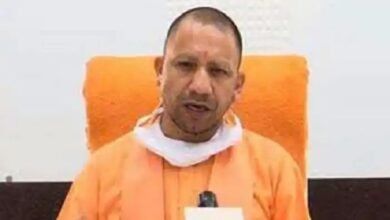[ad_1]
The Supreme Court on Monday upheld the 2019 Presidential Order scrapping the special status granted by way of Article 370 of the Constitution to the erstwhile state of Jammu and Kashmir.
A five-judge Constitution Bench presided by Chief Justice of India D Y Chandrachud said, “The exercise of power by the President under Article 370(1)(d) to issue CO 272 is not mala fide. The President in exercise of power under Article 370(3) can unilaterally issue a notification that Article 370 ceases to exist”.
“The President did not have to secure the concurrence of the Government of the State or Union Government acting on behalf of the State Government under the second proviso to Article 370(1)(d) while applying all the provisions of the Constitution to Jammu and Kashmir because such an exercise of power has the same effect as an exercise of power under Article 370(3) for which the concurrence or collaboration with the State Government was not required,” added the bench.
The bench, which also comprised Justices S K Kaul, Sanjiv Khanna, B R Gavai and Surya Kant, pronounced three judgments – one by the CJI for himself and Justices Gavai and Surya Kant, a concurring judgment by Justice Kaul and a third by Justice Khanna concurring with the other two rulings.
In a separate concurring opinion, Justice Kaul also recommended setting up of a truth and reconciliation commission to look into alleged violations of human rights by both state and non-state actors in J-K. Justice Kaul said it should be based on a dialogue and cautioned that it should not become a criminal court.
Reading out his ruling, CJI Chandrachud said, “The State of Jammu and Kashmir does not retain any element of sovereignty after the execution of the Instrument of Accession (IoA) and the issuance of the Proclamation dated 25 November 1949 by which the Constitution of India was adopted. The State of Jammu and Kashmir does not have ‘internal sovereignty’ which is distinguishable from the powers and privileges enjoyed by other States in the country. Article 370 was a feature of asymmetric federalism and not sovereignty”.
On the reorganisation of the erstwhile state of J-K into the Union Territories of Jammu and Kashmir and Ladakh, the ruling said, “The Solicitor General stated that the statehood of Jammu and Kashmir will be restored (except for the carving out of the Union Territory of Ladakh). In view of the statement, we do not find it necessary to determine whether the reorganisation of the State of Jammu and Kashmir into two Union Territories of Ladakh and Jammu and Kashmir is permissible under Article 3”.
The court, however, upheld “the validity of the decision to carve out the Union Territory of Ladakh in view of Article 3(a) read with Explanation I which permits forming a Union Territory by separation of a territory from any State”.
The SC directed, “Steps shall be taken by the Election Commission of India to conduct elections to the Legislative Assembly of Jammu and Kashmir constituted under Section 14 of the Reorganisation Act by 30 September 2024”. “Restoration of statehood shall take place at the earliest and as soon as possible,” added the court.
The SC also ruled that Article 370 was a temporary provision. “It can be garnered from the historical context for the inclusion of Article 370 and the placement of Article 370 in Part XXI of the Constitution that it is a temporary provision,” it said.
“The power under Article 370(3) did not cease to exist upon the dissolution of the Constituent Assembly of Jammu and Kashmir. When the Constituent Assembly was dissolved, only the transitional power recognised in the proviso to Article 370(3) which empowered the Constituent Assembly to make its recommendations ceased to exist. It did not affect the power held by the President under Article 370(3)”.
[ad_2]





